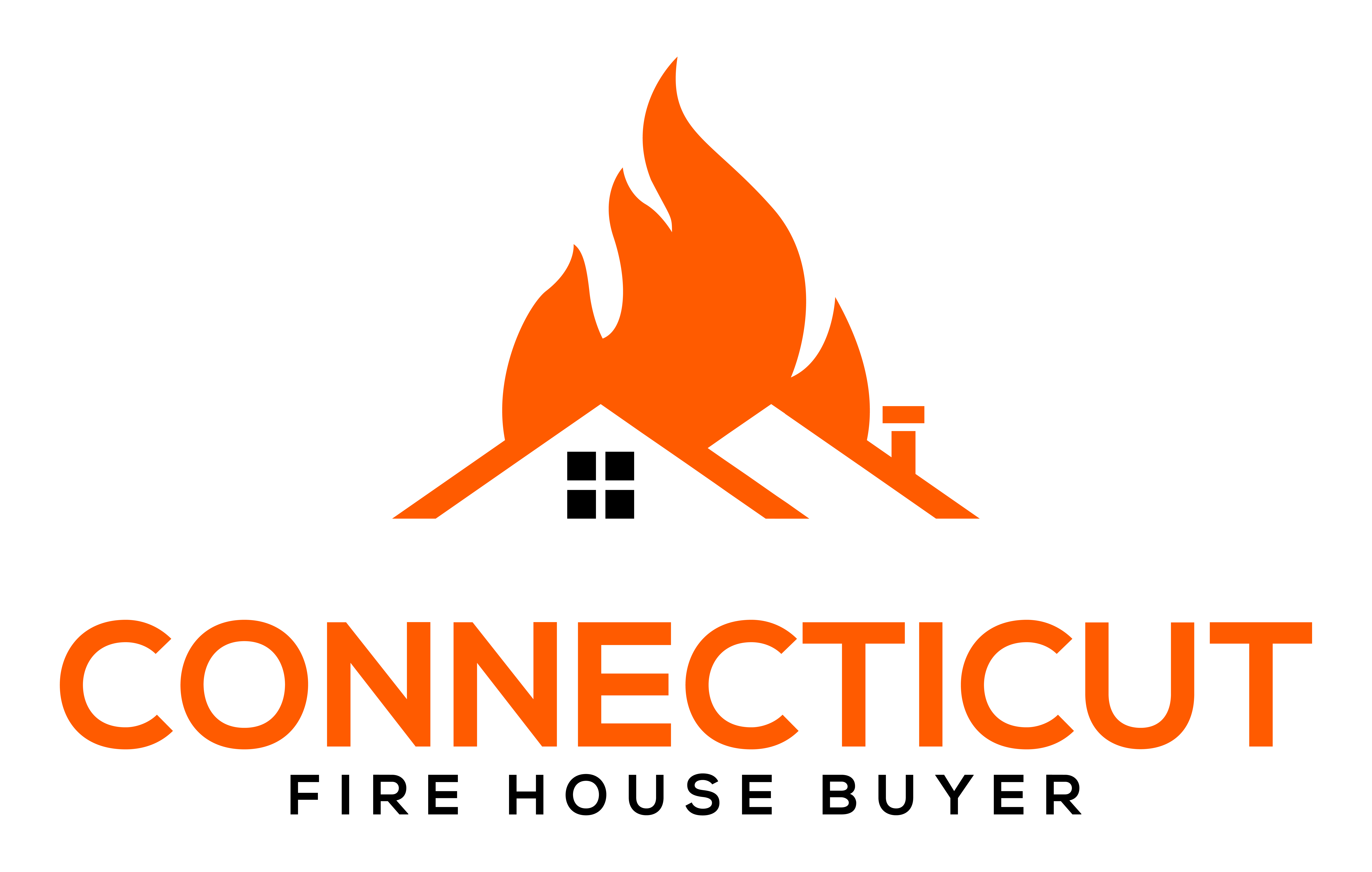Selling A House With Fire-Damaged In Hartford
I buy fire damaged houses in Hartford cash as is, get a fair offer today


We’ll Give You A No Pressure As-Is Cash Offer in 24 Hours
We’re Local, Can Close in 10 Days, Fast Cash




How To Sell A Fire Damaged House As Is In Hartford
If you’re looking to sell your house as-is in Hartford—whether you’re in Blue Hills, Asylum Hill, South End, or Downtown—we guide you through a simple 3-step process. Skip the traditional agent and get a free cash offer, closing in as little as 7 days or on your schedule. Think selling in Hartford takes too long? Try Sell Fire Damaged House Connecticut today.



Fill Out Form
Fill out our form and we’ll get started on your free offer! No obligations.



Receive Cash Offer
We’ll research your property and call you with our fair offer in cash!


You Get Paid!
Money in your bank account at closing. As quick as 7 days!
Sell Your House Fast After a Fire
Selling your fire-damaged home has never been easier. With our seamless, stress-free process, you can move forward quickly and focus on what truly matters.
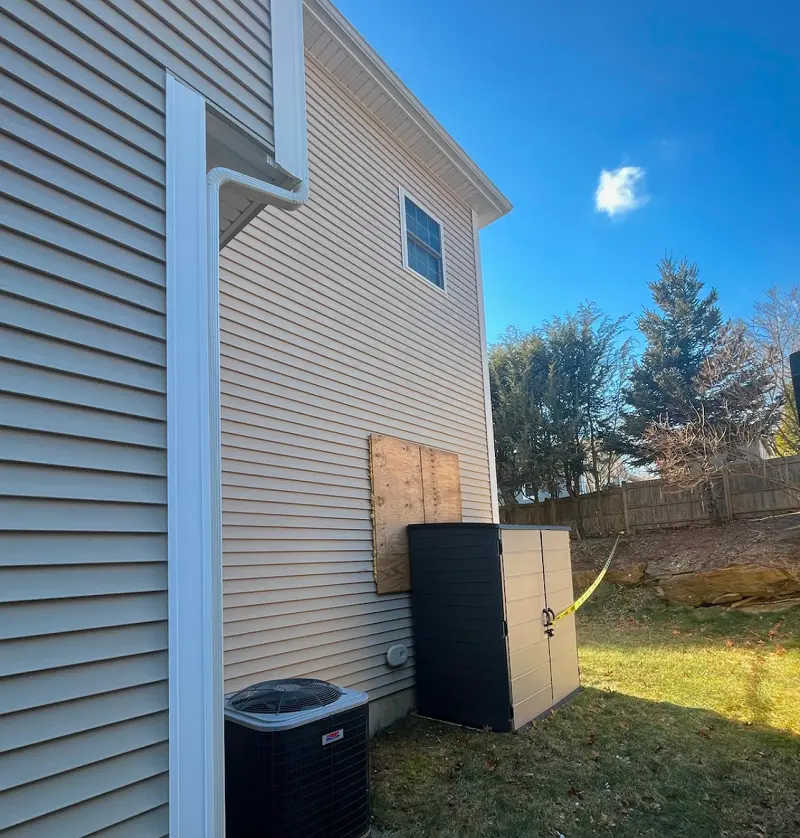
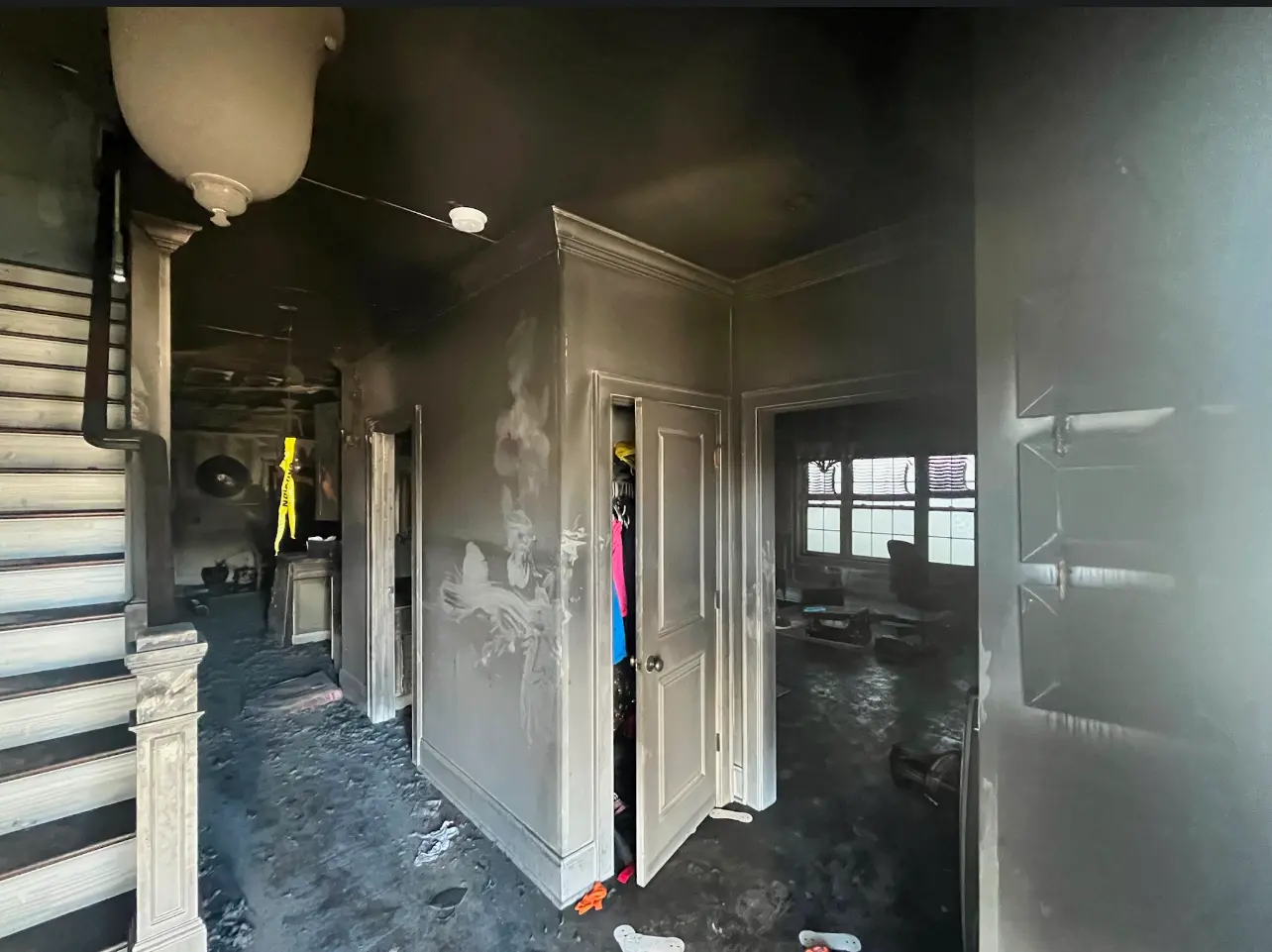
How To Sell A Burned Down Fire Damaged House In CT
- We Buy Fire Damaged Homes
- Selling a fire-damaged house in Hartford requires weighing the pros and cons of various options, such as selling as-is or repair and listing.
- It is important to consult a fire damage restoration contractor to properly assess the damage and estimate repair costs in order to accurately price a house with fire damage.
- In Hartford, it is recommended to disclose fire damage when selling your property in order avoid potential legal disputes & financial liabilities.
We Buy Fire Damaged Homes As Is
We buy homes as-is throughout Hartford, from North End and Frog Hollow to South Meadows and Asylum Hill. Whether you’re dealing with financial stress, probate, or just want to skip MLS listings, inspections, and realtors—even if your house is fire-damaged—you can sell without showings or hassle. We make the process easy, no matter your situation.

No Home Repairs
Selling your house as is means we take care of all the hassles!

No Agents
Skip paying for agent commission. We make home sales simple!

No Fees
Not only do we have NO agent or iBuyer fees, we cover closing costs!

Fast Closing
Sell your home in 7 days or on your timeline! We buy homes fast.

No Obligations
Take it or leave it. Our free cash offers come with no obligations.

Hassle Free
No agents. No inspection. No delays. We buy real estate as-is for cash!
Can I Sell A Fire-Damaged House In Hartford?
Although selling a fire-damaged house in Hartford is possible, it comes with its own set of challenges. The market value of the property is likely to be affected by the damage caused by the fire. This means that selling at a desirable price may be difficult. Additionally, potential buyers may be more inquisitive and cautious when considering such properties.
When selling your fire-damaged house in Hartford, you can either restore it or sell it as-is. If you decide to restore the property, you may face high repair costs and a lengthy rebuilding process. On the other hand, selling as-is can save you time and money, but may result in a lower selling price. Regardless of your decision, honesty about the damage and required repairs is critical.
Sell Fire Damaged House Hartford!
If a simple home sale that closes on your schedule sounds like what you need, come check us out. You can request a free quote for your house by filling out our form below!
We’ll Give You A No Pressure As-Is Cash Offer in 24 Hours
We’re Local, Can Close in 10 Days, Fast Cash
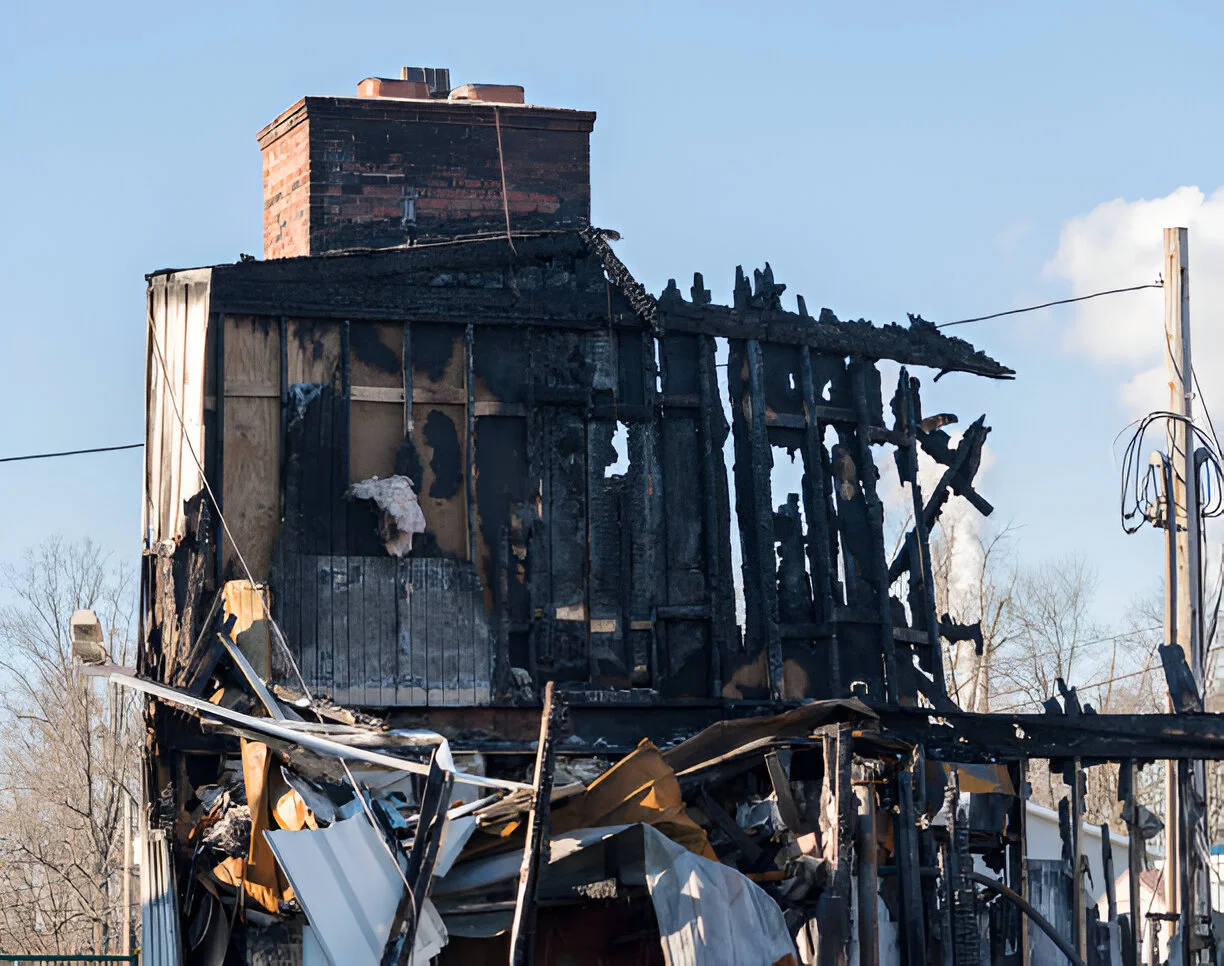
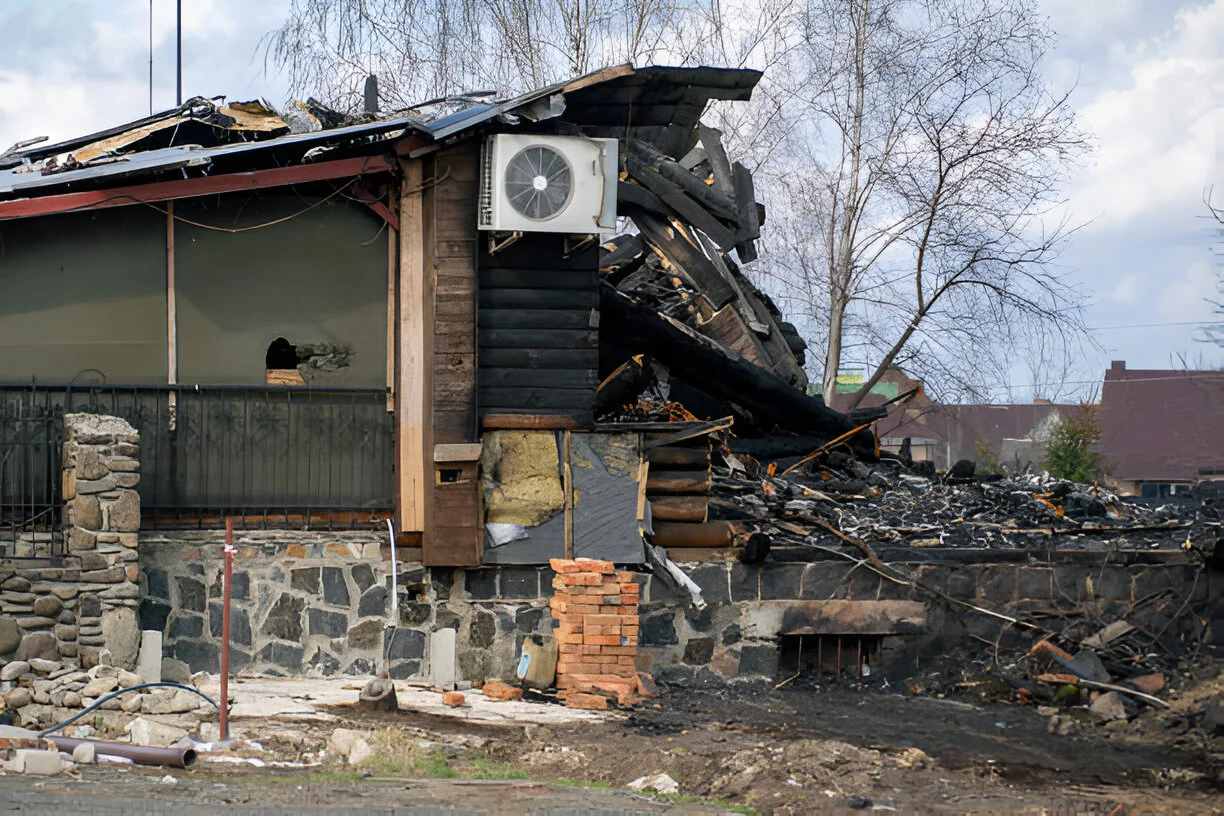
Hartford operates 8 active fire stations, as confirmed by detailed fire service directories and local resources. These stations are distributed across the city, each housing different engine and ladder companies, which ensures comprehensive coverage and rapid response times for Hartford’s neighborhoods. This number reflects the current operational stations and is consistent with official fire department listings. Having 8 stations allows the department to efficiently manage fire suppression, rescue, and emergency medical services citywide.
Fire damage restoration costs in Hartford, Connecticut, typically range from $4.00 to $6.50 per square foot, depending on the extent of the damage, the size of the affected area, and the complexity of repairs required. Here’s a detailed breakdown based on recent local estimates:
Average Cost Range
- Per Square Foot: $4.00–$6.50 for standard fire restoration services, which include cleaning up soot, smoke, water damage from firefighting, and removal of burnt materials.
- Material Costs: In some cases, material costs alone can be as high as $11.00–$12.83 per square foot, especially for specialized restoration or high-damage areas.
- Small Fire Repairs: For minor incidents, such as limited smoke or soot damage, homeowners may pay $3,500–$5,000.
- Major Structural Repairs: Severe damage requiring structural restoration can cost $15,000–$25,000 per room.
- Total Project Cost: The national average for fire restoration is $3,000–$40,000, with Hartford projects typically falling within this range depending on the size and severity of the fire.
Example Estimate
For a 2,600-square-foot home:
- Restoration Cost: 2,600 sq ft × $4.70 (average) ≈ $12,200.
Additional Considerations
- Insurance: Most homeowners’ insurance policies cover fire restoration, but coverage details vary. It’s important to document all damage and work closely with your insurer.
- Soot and Smoke Cleanup: $2,000–$6,000, with higher costs for oily soot (from kitchen or grease fires).
- Permits and Inspection Fees: Not always included in base estimates and may add to the total.
The cost to build a new construction home in Hartford, Connecticut, in 2025 generally ranges from $140 to $260 per square foot, depending on the grade of construction, design complexity, and finish level. Here’s a detailed breakdown:
Cost Per Square Foot by Finish Level
- Average construction cost: Most new homes in Hartford are built for $149–$223 per square foot for standard to mid-range quality.
- Luxury/custom homes: High-end builds with premium materials and custom designs can reach $596 per square foot or more.
Example Cost Calculation
For a 2,000-square-foot home:
- Basic: 2,000 × $149 = $298,000
- Mid-Range: 2,000 × $223 = $446,000
- High-End: 2,000 × $596 = $1,192,000
Additional Costs
- Custom Features: Upgrades, energy-efficient systems, and landscaping will increase total costs.
- Land: Not included in the above estimates. Land in Hartford can range from $150,000 to $400,000 for a typical lot.
- Permits & Fees: Building permits and related fees typically add $3,000 to $7,500 or more.
- Sitework & Utilities: Preparing the land (clearing, grading, utility hookups) can add $10,000 to $50,000 or more, depending on site conditions.
The Hartford real estate market in 2025 is strong, competitive, and experiencing notable price growth, making it one of the hottest markets in the region.
Key Market Trends
- Buyer Demand: Migration from larger cities like New York, Philadelphia, and Los Angeles is contributing to strong demand and putting upward pressure on prices.
- Home Prices: The median home sale price in Hartford was $289,250 to $300,000 in March 2025, up 10.8% to 17.2% year-over-year, depending on the data source. The median price per square foot is $133–$139, reflecting a 7.3% to 19.2% annual increase.
- Sales Activity: While the number of homes sold has dipped slightly (46 homes sold in October 2024, down 9.8% year-over-year), the market remains active with homes selling quickly—median days on market is 41–52 days, up from last year but still relatively brisk.
- Competition: Hartford is a seller’s market. Homes are selling above list price, with an average sale-to-list price ratio of 102.6%. Hot homes can sell for 5–15% above list price and go pending in as little as 8–20 days. Most homes receive multiple offers, often with waived contingencies.
- Inventory: There were 205 homes for sale in March 2025, a 7.3% increase from the previous month, indicating a slight easing in tight supply but still below historic averages.
- Forecast: Home value appreciation is expected to continue, with Zillow forecasting a 4.2% increase in Hartford home values by October 2025. This positions Hartford among the top housing markets in the country for 2025.
Hartford is a city rich in history, culture, and green spaces, offering a diverse array of attractions for visitors and locals alike. Whether you’re interested in literature, art, science, or simply enjoying the outdoors, Hartford has something to delight everyone. Here are some of the city’s most well-known and beloved attractions.
- The Mark Twain House & Museum
- This iconic historic home is where Samuel Clemens, better known as Mark Twain, wrote some of his most famous works. The house is beautifully preserved and offers guided tours, a museum, and special events. It’s a must-see for literature fans and history buffs, offering a unique glimpse into the life and times of one of America’s greatest authors. Its blend of literary history and stunning Victorian architecture sets it apart from other attractions.
- Wadsworth Atheneum Museum of Art
- As the oldest public art museum in the United States, the Wadsworth Atheneum boasts an impressive collection of over 50,000 works, including masterpieces by Warhol, Monet, and other renowned artists. Its diverse exhibitions and grand architecture make it a cultural cornerstone in Hartford. Art lovers and casual visitors alike will appreciate its world-class collections and frequent special exhibitions.
- Elizabeth Park Conservancy
- Elizabeth Park is famous for its historic rose garden, the oldest municipal rose garden in the country, featuring over 800 varieties of roses. The park also offers beautiful walking trails, greenhouses, and serene ponds, making it a favorite for nature lovers, families, and photographers. Its floral displays are especially stunning in bloom, and the park’s year-round accessibility is a major plus.
- Bushnell Park Conservancy
- Bushnell Park is a picturesque urban oasis in downtown Hartford, known for its historic carousel, scenic walking paths, playgrounds, and the iconic Soldiers & Sailors Memorial Arch. The restored 1914 carousel is a highlight for families and nostalgia seekers, while the park itself is perfect for picnics, leisurely strolls, and community events. Its central location and historic significance make it a Hartford staple.
- Connecticut Science Center
- This striking, modern science museum offers nine stories of interactive exhibits, a theater, and hands-on learning experiences for all ages. It’s particularly popular with families and school groups, but its engaging displays on everything from physics to biology make it a fun destination for curious minds of any age. The riverside location adds to its appeal, and its focus on STEM education distinguishes it from Hartford’s more traditional museums.
- Harriet Beecher Stowe Center
- The former home of the author of ‘Uncle Tom’s Cabin,’ this museum and center explores Stowe’s impact on American literature and social justice. Guided tours and thought-provoking exhibits make it a meaningful stop for those interested in history, literature, and civil rights. Its proximity to the Mark Twain House allows for a rich, combined literary experience.
- Great River Park
- Hartford’s riverfront parks offer scenic views, walking and biking trails, picnic areas, and boating opportunities along the Connecticut River. Great River Park is known for its lighted walkways and amphitheater, while Riverside Park features playgrounds, sports courts, and a boathouse. These parks are ideal for outdoor recreation, family outings, and enjoying Hartford’s natural beauty.
- Bushnell Center for the Performing Arts
- Known locally as ‘The Bushnell,’ this grand performing arts venue hosts Broadway shows, concerts, and community events in a historic setting. Its beautiful theaters and diverse programming make it a cultural hub for the city. Whether you’re a fan of the arts or just looking for a memorable night out, The Bushnell delivers top-tier entertainment.
Hartford, Connecticut, is a city rich in history and community, offering a diverse array of neighborhoods that each bring their own unique flair and character. Whether you’re seeking vibrant urban living, historic charm, or a quiet, family-friendly atmosphere, Hartford’s neighborhoods cater to a variety of lifestyles and preferences. Here are some notable neighborhoods in Hartford and what makes each stand out.
- West End
- The West End is beloved for its historic Victorian homes, tree-lined streets, and proximity to Elizabeth Park, which is famous for its rose gardens. This neighborhood is perfect for those who appreciate classic architecture and a strong sense of community. Its active neighborhood associations and regular community events foster a welcoming atmosphere. The West End is ideal for families or anyone who values green spaces and historic charm, though housing here tends to be older and may require more upkeep.
- Downtown Hartford (Central Business District)
- Downtown Hartford is the city’s urban core, offering modern amenities, high-rise apartments, and a walkable environment filled with restaurants, theaters, museums, and parks like Bushnell Park. It’s an excellent choice for professionals, young adults, and those who want to be in the center of the action. The vibrant nightlife and cultural attractions are major draws, though the area can be busier and less residential in feel compared to other neighborhoods.
- South End
- The South End is known for its rich Italian-American heritage and strong sense of community. It offers a mix of single- and multi-family homes, making it an affordable choice for families and first-time homebuyers. The neighborhood is famous for its Italian restaurants, bakeries, and local markets, creating a warm, welcoming atmosphere. While it’s family-friendly and culturally vibrant, some areas may be more densely populated.
- Asylum Hill
- Asylum Hill blends historic charm with urban convenience. It’s home to major employers like The Hartford and Saint Francis Hospital, making it ideal for professionals seeking a short commute. The neighborhood features beautiful historic mansions, including the Mark Twain House & Museum, and offers a mix of historic homes and modern apartments. Revitalization efforts have brought new businesses and developments, though some parts of the neighborhood are still evolving.
- Frog Hollow
- Frog Hollow is a vibrant neighborhood known for its arts and cultural scene, historic brownstones, and colorful murals. It’s a great fit for artists, students, and young professionals thanks to its proximity to downtown and affordable housing options. The neighborhood has a creative, eclectic vibe, but some areas may be noisier or less polished due to ongoing revitalization.
- Blue Hills
- Blue Hills offers a quiet, suburban feel within city limits, with well-kept single-family homes, tree-lined streets, and strong community ties. It’s family-friendly and provides easy access to parks, schools, and shopping centers. The neighborhood is perfect for those seeking a peaceful retreat without sacrificing accessibility, though it may feel less urban and lively than downtown or arts-centric areas.
- Barry Square
- Barry Square is a residential area with deep historical roots and a diverse community. It’s home to Trinity College and features a mix of housing styles, making it attractive to students, families, and those interested in the neighborhood’s multicultural heritage. Its proximity to educational institutions and community facilities is a plus, though it can be busier during the academic year.
- Parkville
- Parkville is a mixed industrial-residential neighborhood with a growing reputation for its creative energy and multicultural influences. Known for its vibrant arts scene and diverse dining options, Parkville appeals to young professionals, artists, and anyone seeking a dynamic, up-and-coming area. The neighborhood is still developing, so some parts may be more industrial or in transition.
- Sheldon/Charter Oak
- Sheldon/Charter Oak is a historic neighborhood near the Connecticut River, known for its blend of residential and commercial spaces. It’s close to downtown and offers a mix of older homes and newer developments. The area is popular with young professionals and those seeking a central location with character, though it may be less residential in feel than some other neighborhoods.
How to Sell My Fire-Damaged House in Hartford: Expert Tips
A fire can transform a cherished home into an overwhelming challenge in mere minutes. The charred walls and smoke-damaged rooms leave Hartford homeowners facing difficult decisions about their property’s future.
While the path forward might seem unclear, there are multiple proven solutions for selling a fire-damaged house in today’s market.
The real estate environment in Hartford offers several viable options for homeowners dealing with fire damage. From working with specialized cash buyers who can close within days to partnering with experienced realtors who understand distressed properties, you have more choices than you might realize.
Many local investors specifically focus on helping homeowners manage these challenging circumstances, offering streamlined processes that eliminate typical real estate hassles.
Your fire-damaged property still holds value, and understanding how to maximize that value is crucial. From evaluating the extent of structural damage to managing insurance claims and disclosure requirements, each step influences your property’s final selling price.
Local market conditions, repair cost considerations, and various selling methods can significantly impact your outcome. Armed with the right information and strategy, you can transform this challenging situation into a successful property sale that allows you to move forward with confidence.
First Steps After Fire Damage
I’ve helped numerous Hartford homeowners work through the aftermath of house fires, and I can tell you that those first few steps are absolutely crucial. Your actions immediately after a fire can significantly impact your insurance claim and potential property resale opportunities.
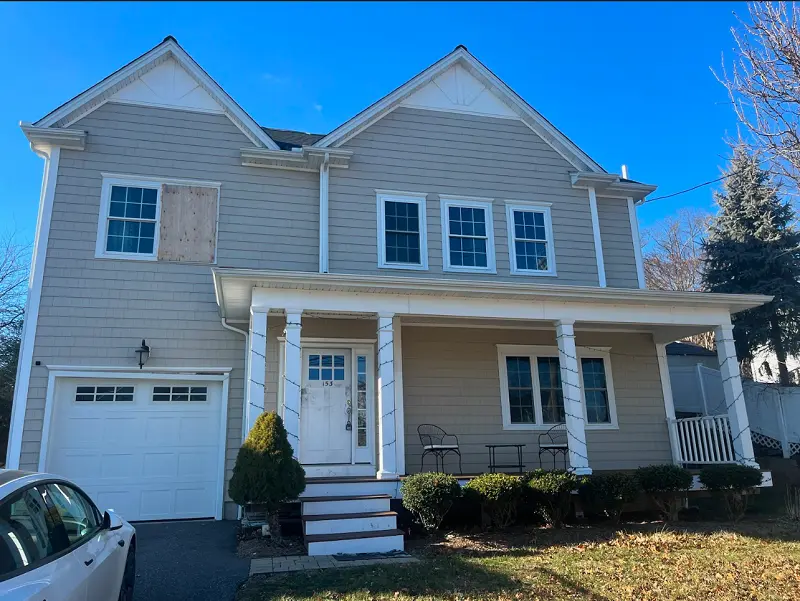
Safety Assessment And Documentation
Trust me on this one – never enter your property until the fire department gives you the all-clear. Even when the flames are gone, hidden dangers lurk: weakened floors, toxic fumes, and water-soaked electrical systems can be lethal.
Once you get the green light, grab your phone or camera and document everything. I mean everything. Those photos and videos will be your best friends when dealing with insurance and potential buyers down the road.
Insurance Claim Process
Starting your insurance claim requires a methodical approach. Call your insurance company right away – I’ve seen delays complicate claims unnecessarily. Your insurer will send an adjuster to evaluate the damage and determine your coverage based on your policy terms.
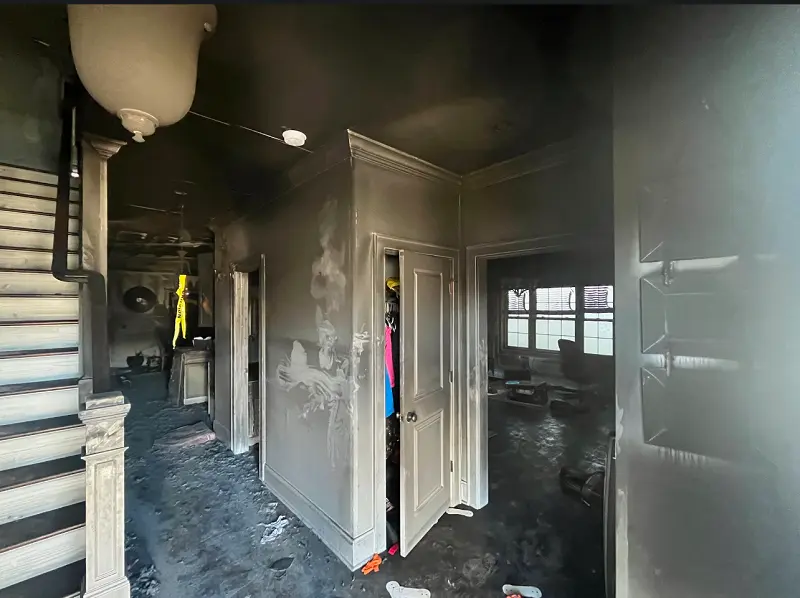
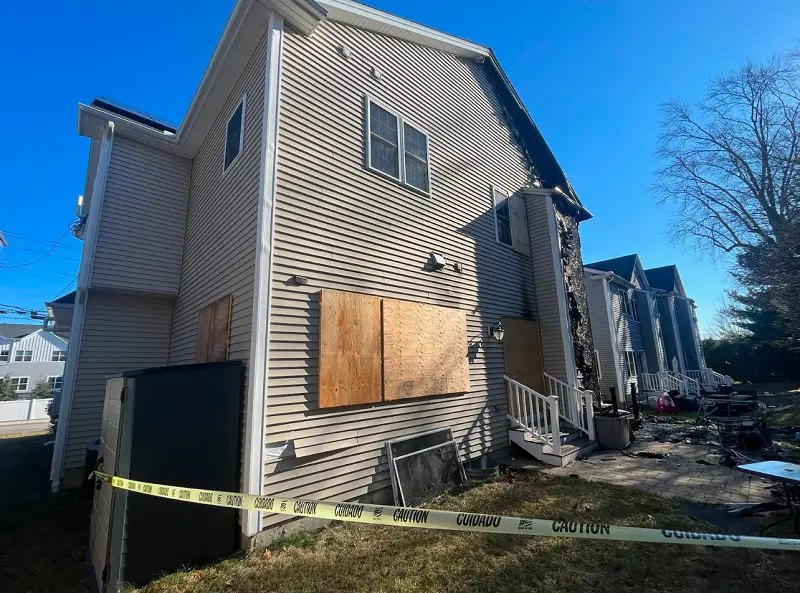
Working With Insurance Adjusters
Think of your insurance adjuster as a key partner in your recovery process. Keep a dedicated notebook for all your conversations, and scan or photograph every document you exchange. Here’s a pro tip I’ve learned: consider hiring a public adjuster. They’re experts who work for you, not the insurance company, and often help secure better settlements
Documenting All Damages
Create your damage inventory like a detective building a case:
• List every damaged item with serial numbers
• Note purchase dates and original costs
• Take close-up photos of damage
• Document smoke and water damage
• Save receipts for emergency repairs
• Track additional living expenses
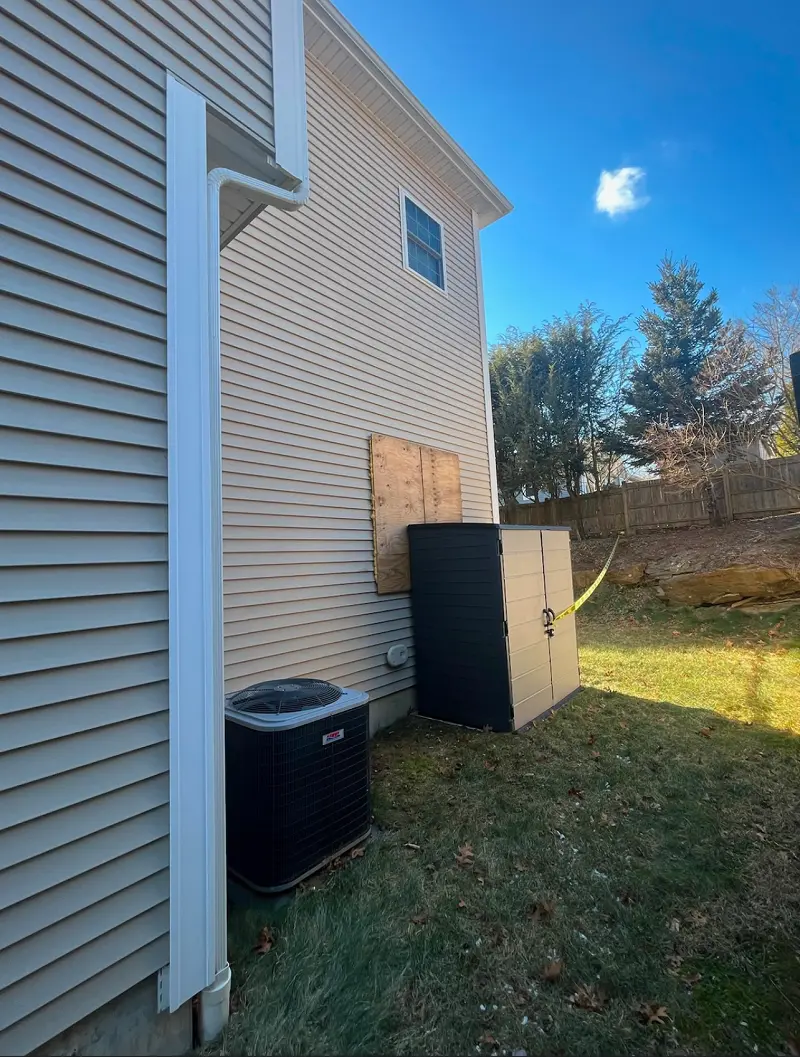
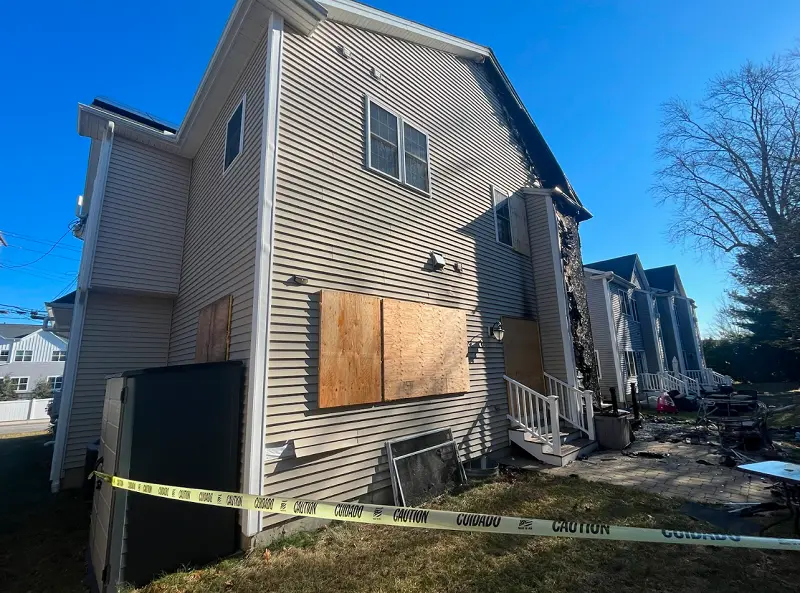
Securing The Property
Your fire-damaged house needs immediate protection from the elements. I’ve seen minor fire damage turn catastrophic when homes weren’t properly secured. Here’s what you need to do:
• Board up broken windows
• Lock and secure all entry points
• Cover roof damage with heavy-duty tarps
• Remove valuable items if possible
• Install temporary fencing if needed
Essential Contact Information
Keep these crucial contacts at your fingertips:
Primary Contacts:
• Insurance Agent: Policy and claim numbers
• Fire Department: Incident report details
• Building Department: Permit information
• Restoration Companies: At least three estimates
Secondary Contacts:
• Mortgage Lender
• Public Adjuster
• Real Estate Professional
• Debris Removal Service
• Temporary Housing Coordinator
Pro tip: Create a digital backup of all these contacts and related documents. I’ve seen too many paper records get lost or damaged during the cleanup process. Remember, good organization now saves countless headaches later.
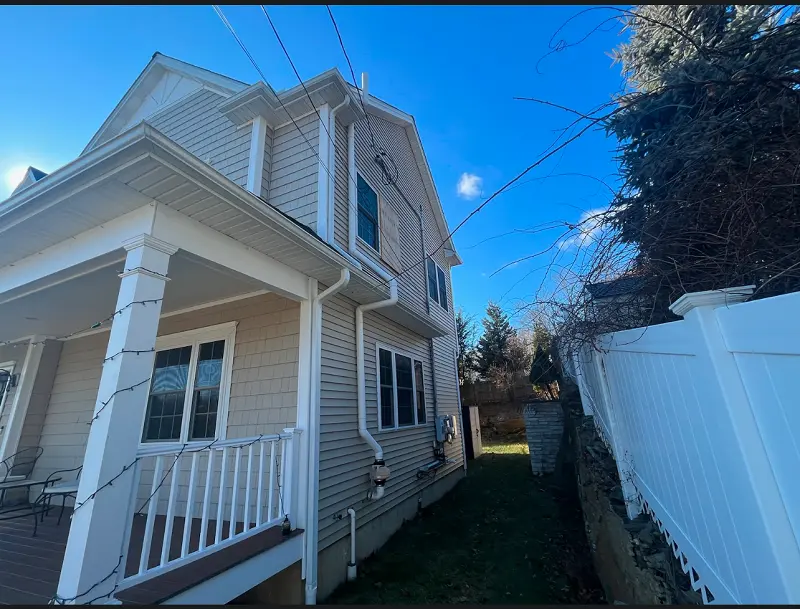
Evaluating Your Options
I’ve helped numerous Hartford homeowners explore the complex decisions after fire damage, and I know firsthand how overwhelming it can feel. Let’s break down your options to help you make the best choice for your situation.
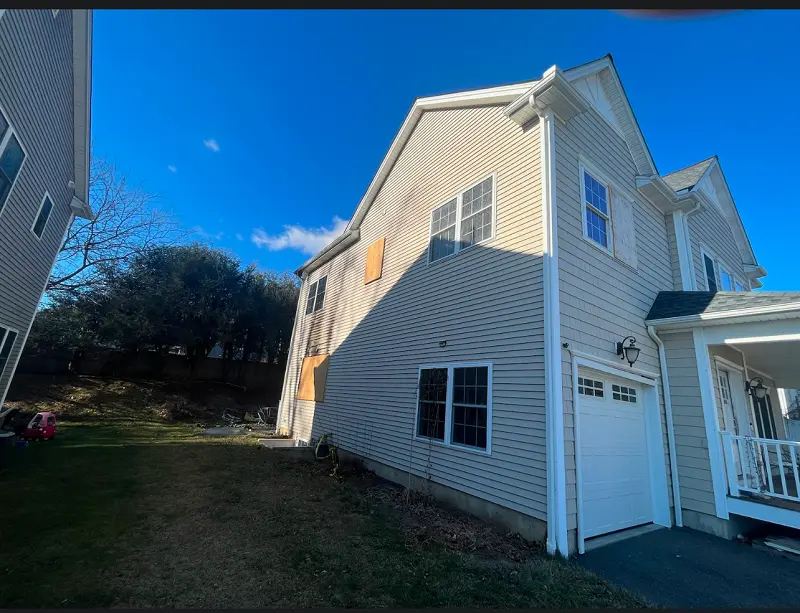
Selling As-Is Vs. Repairing
The biggest question I hear from homeowners is whether to sell their fire-damaged property as-is or invest in repairs. Here’s what you need to know: Local cash buyers and real estate investors regularly purchase fire-damaged houses as-is, typically closing within 7-10 days. While this offers a quick solution, investing in repairs could potentially yield a higher return.
Cost Analysis of Repairs
Before making your decision, you’ll want to gather multiple contractor estimates. Here’s what to include in your assessment:
• Complete structural repair costs
• Professional smoke damage remediation
• Water damage restoration services
• Electrical system overhaul
• Interior and exterior cosmetic improvements

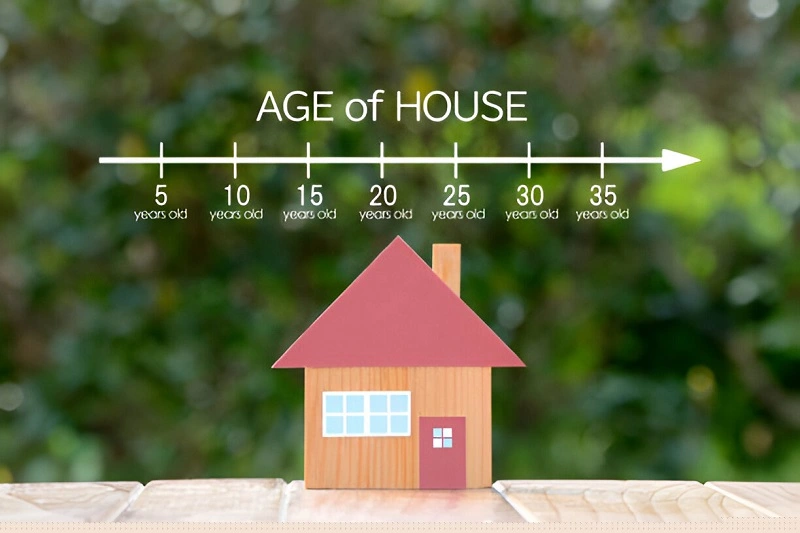
Timeline Considerations
I’ve seen repair projects stretch anywhere from 2-6 months, depending on damage severity and local contractor availability. Meanwhile, cash buyers can typically close within a week. Your decision should factor in:
• Monthly mortgage obligations
• Insurance coverage duration
• Personal living arrangements
• Financial carrying costs
Current Market Value Assessment
Working with experienced local realtors or property investors helps establish a realistic market value for your damaged property. Key factors affecting your home’s current worth include:
• Your property’s pre-fire market value
• The full scope of fire damage
• Recent sales of similar damaged properties
• Current Hartford real estate market trends

Financial Implications

Insurance Payout Considerations
Your insurance settlement plays a crucial role in determining your next steps. Consider how your payout aligns with:
• Total repair cost estimates
• Outstanding mortgage balance
• Relocation expenses
• Emergency housing needs
Tax Implications
Fire damage and property sales create unique tax situations that deserve careful attention. I always recommend consulting with a tax professional about
• Available casualty loss deductions
• Potential capital gains impacts
• Insurance settlement tax treatment
• Property basis adjustments
While repairing your property might seem like the best path to maximum value, don’t overlook the hidden costs. Consider monthly carrying expenses, repair timeline uncertainties, and the emotional toll of managing a renovation project.
Sometimes, the simplicity and speed of an as-is sale to a cash buyer prove more valuable than a potentially higher sale price months down the road

Types Of Fire Damage And Their Impact
Fire damage can turn your Hartford home-selling journey into a complex challenge. I’ve worked with numerous homeowners facing similar situations, and I’ve found that understanding the different types of fire damage helps create a clear path forward. Let’s explore how various forms of fire damage can affect your property’s value and marketability.
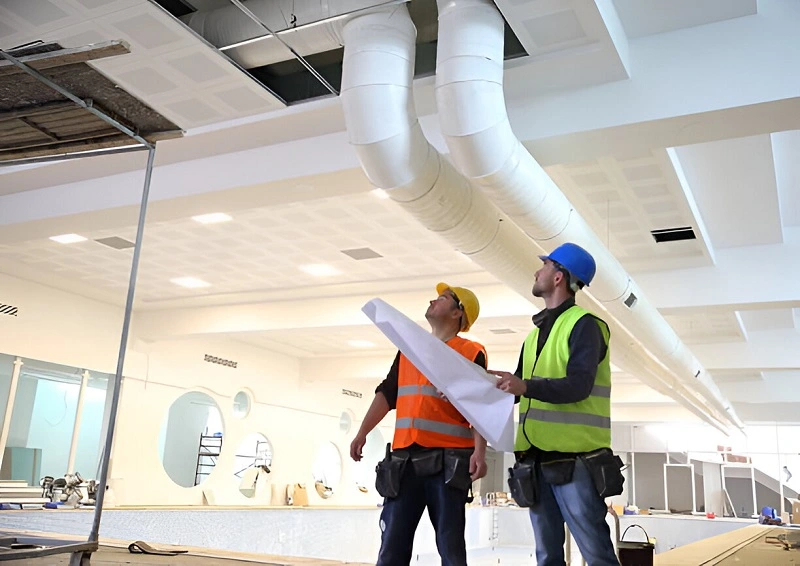
Structural Damage Assessment
Structural damage is the most concerning type of fire-related problem I encounter. Here’s what typically needs evaluation:
• Foundation weakening from intense heat exposure
•Compromised load-bearing walls that threaten stability
•Roof system damage affecting overall house integrity
•Floor joist deterioration that could lead to collapse
Having worked with many structural engineers, I can tell you their thorough evaluations are absolutely crucial. These assessments not only determine repair feasibility but also provide essential documentation for buyers and insurance companies.
Smoke And Water Damage
While flames create immediate visible destruction, I’ve seen smoke and water damage create equally devastating long-term issues. Smoke particles can silently infiltrate:
• Wall cavities and interior spaces
• HVAC systems, requiring extensive cleaning
• Electrical components, leading to future failures
• Insulation materials, requiring complete replacement
The water used to fight fires often causes these persistent problems:
• Aggressive mold growth in hidden spaces
• Material warping, especially in wooden structures
• Electrical system corrosion over time
• Foundation seepage causing basement issues
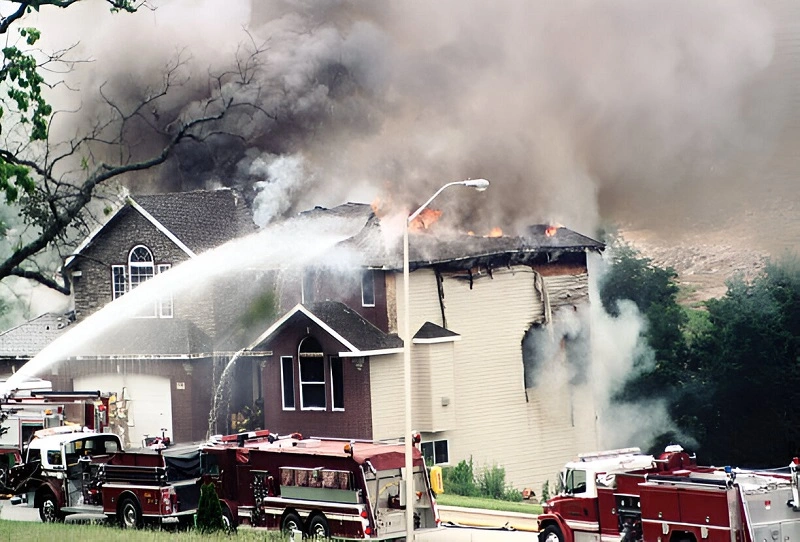
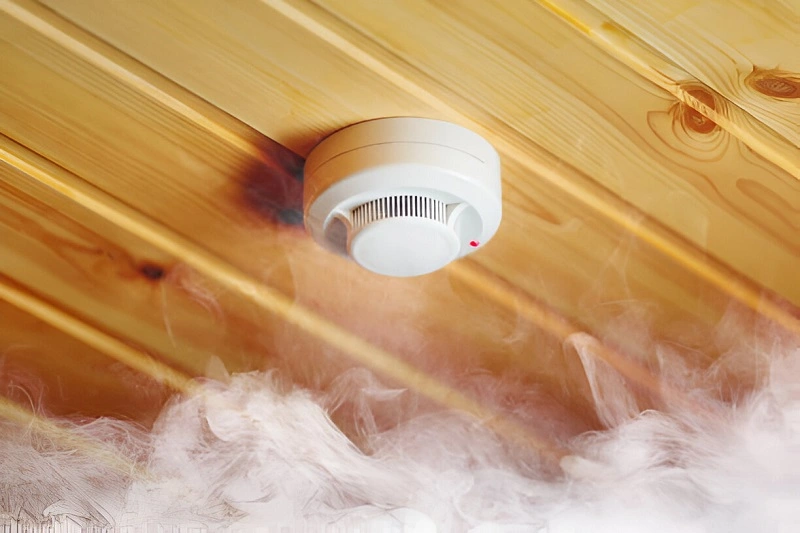
Hidden Damage Concerns
Through years of experience, I’ve learned that invisible damage often poses the biggest challenges. These concealed issues frequently emerge months or years after the fire:
• Unexpected electrical system malfunctions
• Stubborn smoke odors that resurface in humid weather
• Gradually weakening structural elements
• Ongoing air quality concerns affecting health
Professional inspectors use advanced thermal imaging and moisture detection equipment to uncover these hidden problems. This thorough investigation proves essential for accurate assessment and proper buyer disclosure.
Impact On Property Value
Fire damage inevitably affects property value, though I’ve seen the impact vary significantly based on:
• The severity and extent of the damage
• Restoration work quality and completeness
• Current market conditions in your area
• Specific property location and characteristics
Even after professional restoration, fire damage history can influence:
• Future insurance premium rates
• Long-term property marketability
• Available financing options
• Required disclosure timeframes
My experience shows that understanding these damage types helps set realistic expectations for your property’s value. While fire damage presents significant challenges, working alongside experienced professionals who specialize in fire-damaged properties can make a substantial difference in guiding the sale process successfully.

Selling Methods For Fire-Damaged Houses
When dealing with a fire-damaged house in Hartford, you’ve got several solid options for selling. I’ve helped numerous homeowners explore these choices, and each method offers unique benefits depending on your specific situation and timeline.
Cash Buyers And Investors

Benefits Of Cash Sales
Cash buyers and real estate investors have become my go-to recommendation for many sellers with fire-damaged properties. Here’s why they’re often the best choice:
• Lightning-fast closings (typically 7-10 days)
• Zero repair requirements – they buy truly as-is
• No hidden fees or closing costs
• Simplified paperwork process
• No staging or cleaning needed
Finding Reputable Buyers
Looking for trustworthy cash buyers in Hartford? Here’s what I’ve learned works best:
• Search for established local investment companies
• Comprehensively examine online reviews and testimonials
• Double-check their business licenses and credentials
• Contact previous sellers for references
• Get at least three offers to compare


Traditional Real Estate Market
Listing your fire-damaged house with a realtor might work well in certain situations. From my experience, consider this route if:
• Your property has minimal fire damage
• You’ve already tackled some repairs
• Time isn’t your primary concern
• You’re comfortable with buyer negotiations
• Maximum sale price is your priority
A realtor who specializes in damaged properties can be worth their weight in gold. They’ll know exactly how to market your property and set realistic price expectations based on current market conditions.
Auction Options
I’ve seen auctions work wonderfully for some fire-damaged properties. They’re particularly effective when:
You need a specific sale date
Your property might attract multiple investors
You want to spark competitive bidding
Traditional sales methods haven’t delivered
You prefer an open, transparent process


For Sale By Owner Approach
Want to take the reins yourself? Selling your fire-damaged house independently can save you money on commissions. Here’s what you’ll need to handle:
• Creating compelling marketing materials
• Managing property viewings
• Negotiating with potential buyers
• Handling all necessary paperwork
• Following Hartford’s disclosure requirements
A tip: Keep detailed records of all fire damage and repairs. Hartford law requires full disclosure of material defects, and being upfront about the damage builds trust with potential buyers.
Each selling method has its sweet spot. While cash buyers typically offer the smoothest path for severely damaged properties, traditional methods might yield better results for homes with minimal damage. Your timeline, property condition, and financial goals will guide you toward the best choice.
Legal Requirements And Disclosures
Exploring the legal aspects of selling a fire-damaged house in Hartford can feel complex, but I’ve helped many homeowners through this process. Let me share what you need to know to protect yourself and ensure a smooth transaction.
Hartford Disclosure Laws
Hartford law requires sellers to be completely upfront about their property’s condition. In the case of fire damage, here’s what you must disclose:
• You need a specific sale date
• Your property might attract multiple investors
• You want to spark competitive bidding
• Traditional sales methods haven’t delivered
• You prefer an open, transparent process
I’ve found that being transparent about these issues not only fulfills legal requirements but also builds trust with buyers and prevents potential lawsuits down the line.
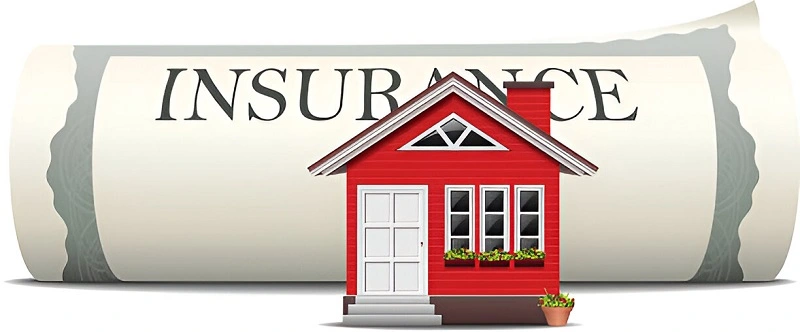

Documentation Requirements
Think of proper documentation as your safety net during the sale process. Here’s what you’ll need to keep handy:
• Official fire department reports
• Insurance claim paperwork and assessments
• Detailed contractor estimates and repair records
• Results from any environmental testing
• Before-and-after photos showing damage and repairs
• All permits related to restoration work
Keep these documents organized in a folder or digital file – trust me, you’ll be glad you did when potential buyers start asking questions.
Liability Considerations
Selling a fire-damaged house comes with its share of risks, but there are ways to protect yourself. Even after the sale closes, you could face liability issues if you haven’t taken the proper precautions.
Following disclosure laws carefully is your best defense against future legal troubles. I always recommend working with a qualified attorney who can review your documentation and ensure you’re meeting all legal obligations.


Required Permits And Inspections
Before putting your property on the market, you’ll need to complete several important steps:
• Get a structural safety inspection to confirm the building is sound
• Apply for and receive permits covering all repairs
• Have the electrical system thoroughly checked
• Complete any required environmental testing
• Obtain official certification that the house is safe to occupy
Traditional lenders often require additional inspections before approving a mortgage. Even if you’re working with a cash buyer, having these inspections and permits in order makes the process much smoother.
Each Hartford municipality has its own specific requirements for inspections and permits. I recommend checking with your local building department early in the process to understand exactly what you’ll need for your area.
Pricing Strategies
Setting the right price for your fire-damaged house in Hartford requires careful consideration of multiple factors. I’ve helped numerous homeowners work through this challenging process, and I can tell you that a well-thought-out pricing strategy often makes the difference between a quick sale and a property that remains unsold.
Market Analysis For Damaged Properties
Understanding your property’s current market value starts with a thorough analysis of similar properties in your area. From my experience working with fire-damaged homes, traditional comparable sales only tell part of the story. Here’s what you should look for:
• Recent sales of damaged or distressed properties in your neighborhood
• Time-on-market for similar fire-damaged properties
• Price differences between damaged and undamaged properties
• Current market conditions in your specific Hartford region
The most accurate way to determine your property’s value is through a professional appraisal from your mortgage lender or by partnering with a local realtor who specializes in distressed properties. These experts can provide realistic estimates based on your home’s current condition and location within the Hartford market.
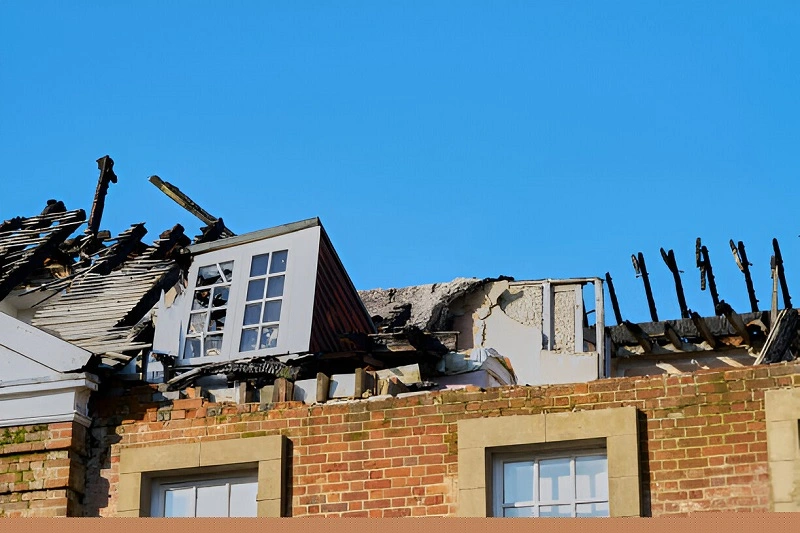
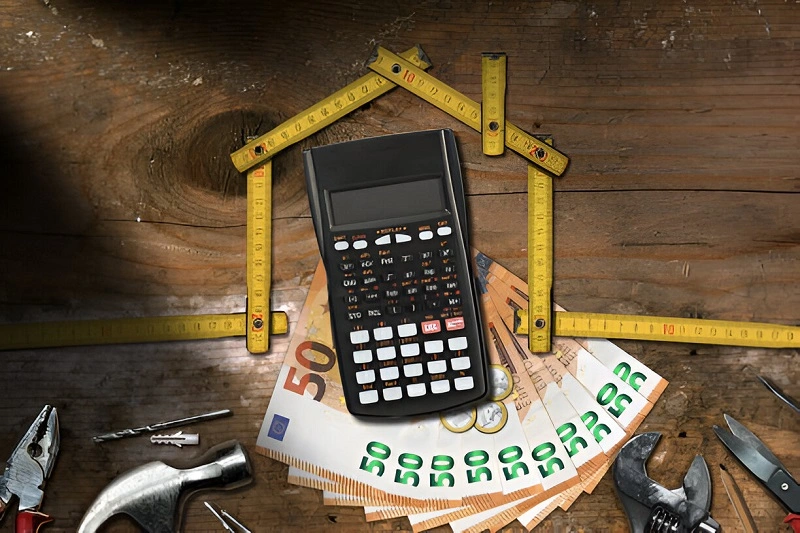
Factoring In Repair Costs
When pricing your fire-damaged house, you’ll need to account for these essential repair costs:
• Structural damage assessment and repairs
• Smoke and water damage remediation
• Electrical system evaluation and updates
• HVAC system repairs or replacement
• Cosmetic repairs and renovations
• Required code compliance updates
Your property’s final asking price should reflect these repair costs, as potential buyers will factor them into their offers. I’ve found that investors and cash buyers typically expect a 20-30% discount to account for the work they’ll need to perform and the risks they’re taking on.
Negotiation Considerations
Successful negotiations require understanding both your position and the buyer’s perspective. Here are the key factors I’ve seen influence deals:
• Buyer’s intended use (renovation vs. demolition)
• Current market demand for fixer-upper properties
• Local construction costs and contractor availability
• Seasonal market variations in Hartford
• Urgency of your sale timeline
• Insurance settlement status
The key to successful negotiations is maintaining flexibility while knowing your bottom line. Cash buyers often present lower initial offers, but they can provide valuable benefits like quick closings and as-is purchases. These advantages become particularly important when you’re dealing with the stress of managing a fire-damaged property.
Remember that the final sale price isn’t your only consideration. Terms like closing timeline, repair responsibilities, and whether the buyer will cover closing costs can significantly impact your bottom line. In my experience, accepting a slightly lower price often makes sense when the overall terms better align with your immediate needs and long-term goals.

Frequently Asked Questions
I’ve seen various timelines in the Hartford real estate market, and it really comes down to your selling approach. Working with cash buyers or real estate investors typically leads to a quick closing within 7-10 days.
Going the traditional route through a realtor? That usually takes several months, since finding buyers comfortable with damaged properties requires more time and patience.
Your coverage largely depends on your specific policy and damage extent. While most standard homeowner’s insurance policies include fire damage protection, the payout might not match your home’s pre-damage value.
From my experience handling insurance claims, your best bet is to work closely with your insurance adjuster. Document everything thoroughly – take photos, save receipts, and keep comprehensive notes to ensure you receive fair compensation within your policy terms.
Absolutely! Having a mortgage doesn’t prevent you from selling your fire-damaged property. You’ll just need to make sure the numbers work out.
The sale price should cover your remaining mortgage balance, or you’ll need to prepare to pay the difference at closing. Here’s some good news: your insurance payout can often help bridge any gaps between your mortgage balance and what buyers are willing to pay.
In Hartford’s real estate market, cash buyers and real estate investors are your most likely buyers for fire-damaged homes. These professionals specialize in rehabilitating distressed properties and offer several advantages:
• Quick closing timelines
• Coverage of all closing costs
• As-is purchases with no repair requirements
• Experience with fire-damaged properties
• Straightforward transaction process
When evaluating offers that seem low, I always recommend looking at the complete picture. Consider these key factors:
• Closing timeline flexibility
• Buyer’s closing cost coverage
• As-is purchase terms
• Buyer’s proof of funds
• Contingency requirements
Sometimes, accepting a lower offer with favorable terms proves more beneficial than holding out for a higher price that comes with strings attached. I’ve seen sellers benefit more from quick, guaranteed closings than from waiting months for potentially better offers that might never materialize.
What You Should Do After A House Fire In Hartford
In the aftermath of a house fire in Hartford, immediate actions are crucial to address the situation. Here are the steps you should take:
Quick Checklist
1. Contact the fire department for a report.
2. Speak with your insurance company to assess any damage.
3. File an insurance claim.
4. Adhere to legal disclosure requirements when selling a fire-damaged house in Hartford.
Depending on your decision to repair or sell the fire-damaged house, you will need to:
1. Assess the damage
2. Contact insurance
3. Obtain multiple quotes
4. Budget for unexpected expenses
5. Work with insurance to get your payout
6. Complete repairs
7. List on the market
Collaborating with an adjuster can assist in evaluating damage and repairs and guarantee an equitable settlement when submitting a fire insurance claim.
Sell Your House After A Fire For Cash in Hartford Today
I’ve helped many Hartford homeowners work through the challenges of selling fire-damaged properties, and I can tell you firsthand – it’s not as challenging as it might seem. You’ve got several practical options to choose from:
• Working with cash buyers for a quick, hassle-free sale
• Listing on the traditional real estate market
• Partnering with local real estate investors
Here’s something crucial I’ve learned: transparency builds trust and protects everyone involved. Hartford law requires full disclosure of fire damage, and being upfront about your property’s condition helps create smoother transactions and prevents potential legal issues down the road.
Let’s break down what matters most when making your decision:
• Extent of fire damage
• Your timeline requirements
• Financial goals and expectations
• Current market conditions
• Available restoration resources
I’ve seen firsthand how local real estate investors and cash buyers specialize in these situations. They understand the unique challenges of fire-damaged properties and often provide solutions that traditional buyers can’t match.
Think of this as your turning point – not your setback. Fire damage doesn’t have to define your property’s story or limit your options. Many of my clients have successfully sold their fire-damaged homes and moved forward with their lives, often more quickly than they expected.
Ready to explore your options? Local cash buyers and real estate investors who specialize in fire-damaged properties are just a call away. Take that first step today – you might be surprised at how many solutions are available for your specific situation.
Sell Fire Damaged House Hartford!
If a simple home sale that closes on your schedule sounds like what you need, come check us out. You can request a free quote for your house by filling out our form below!
We’ll Give You A No Pressure As-Is Cash Offer in 24 Hours
We’re Local, Can Close in 10 Days, Fast Cash
